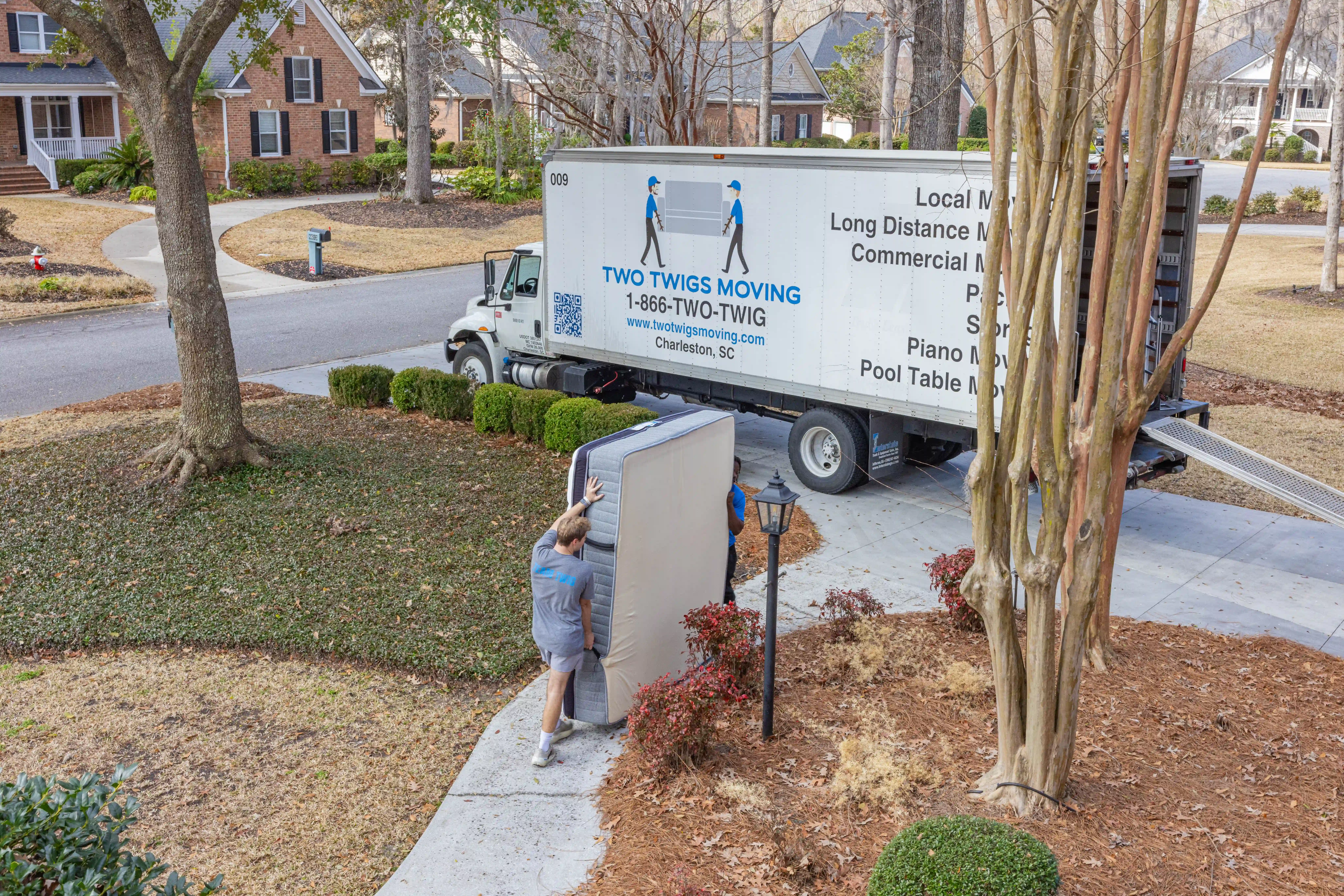Over 50% of all relocations involve individuals aged 50 and above. Moving can be a stressful experience for seniors, and that’s why we prioritize making their moves as seamless and supportive as possible.
Packing and Unpacking Assistance at Your Service
Senior moves frequently entail the need for professional packing and unpacking services, and we’re here to help. In addition to safely transporting your belongings, we offer comprehensive assistance with packing and unpacking.
Whether you’re downsizing into a cozier home or transitioning to a retirement or assisted living facility, our movers can handle all or just part of the packing and unpacking. Our packing services are fully customizable, tailored to your unique requirements and preferences. At TWO TWIGS MOVING, we make it convenient for you.
Here are some other tips for a smoother transition when moving with seniors:
Communication and Involvement: Keep open lines of communication with the senior involved. Involve them in decision-making as much as possible to make them feel in control of the process. Discuss the reasons for the move and listen to their concerns and preferences.
Plan Early: Start planning well in advance to reduce stress. Create a timeline and checklist to help you stay organized. Determine the moving date, new living arrangements, and the tasks that need to be completed.
Downsizing and Decluttering: Seniors often need to downsize their belongings. Help them sort through their possessions and decide what to keep, donate, or sell. Be sensitive to their emotional attachment to items.
Choosing the Right Living Arrangement: If the senior is moving to a new home, carefully consider their needs and preferences. Assess factors such as accessibility, proximity to healthcare facilities, and social activities. Consult with healthcare professionals if necessary.
Professional Assistance: Consider hiring professional movers who specialize in senior relocations. They can handle the logistics and provide a smoother moving experience.
Medical and Legal Concerns: Ensure that all medical records and legal documents are in order. This includes healthcare proxies, power of attorney, and any necessary prescriptions. Keep important documents in a secure and easily accessible place.
Safety and Accessibility: When moving to a new home, ensure that it is safe and accessible for the senior. This includes installing handrails, removing tripping hazards, and making necessary modifications for mobility.
Packing and Labeling: Use a systematic approach when packing. Label boxes clearly to indicate the contents and their intended location in the new home. This will make unpacking much easier.
Personal Essentials: Pack a “first-night” box with essential items like medications, toiletries, and a change of clothes. This ensures that the senior has immediate access to what they need.
Emotional Support: Moving can be emotionally challenging for seniors. Offer emotional support, reassurance, and patience throughout the process. Acknowledge their feelings and provide comfort when needed.
Stay Organized: Keep all important documents, contact information, and medical records in one place. This will help with any emergencies or unexpected situations during the move.
Visit the New Home: If possible, take the senior to visit their new home before the move. Familiarity can ease the transition and reduce anxiety.
Community and Social Connections: Encourage the senior to maintain their social connections. Help them connect with local community groups, senior centers, or clubs in the new location.
Follow Up: After the move, continue to check in and provide support. Ensure that they are settling in comfortably and address any issues or needs that arise.
Moving with seniors requires a thoughtful and patient approach. By considering their emotional and physical well-being and involving them in the process, you can help make the transition as smooth and stress-free as possible.


.svg)


